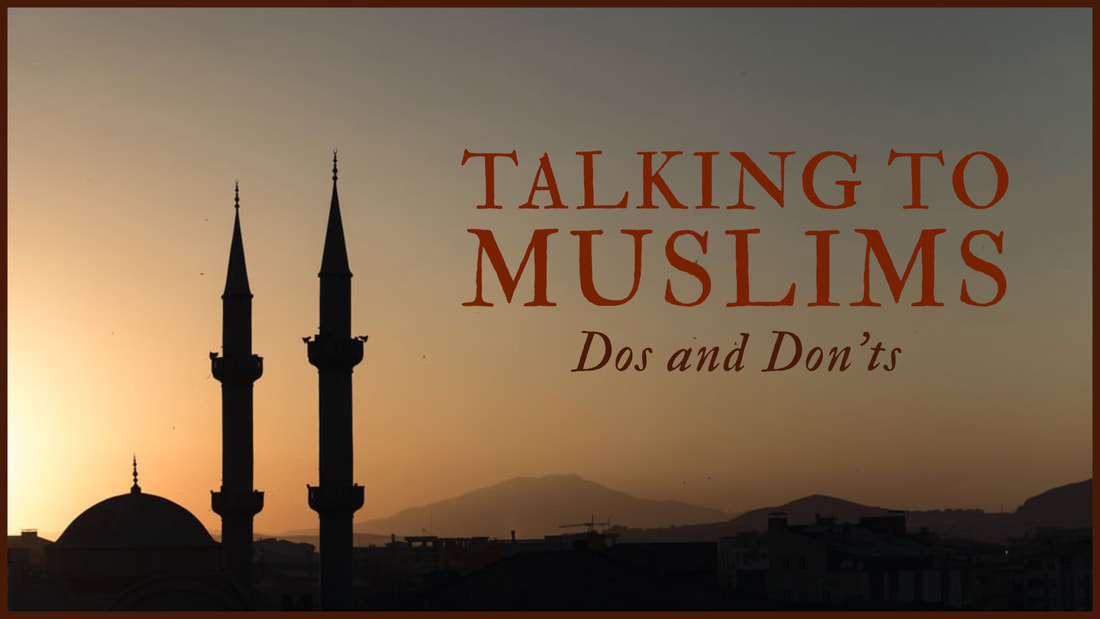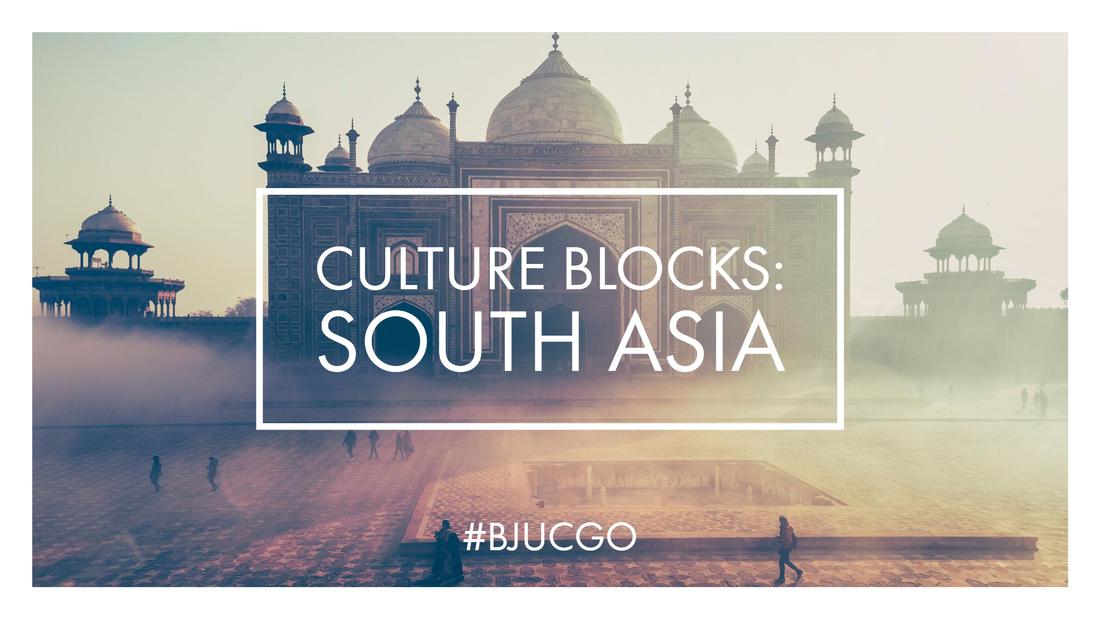David, BJU AlumnusTwenty-eight years ago, I moved from BJU–Brokenshire to a Muslim-majority country. I remember my first evenings here. At dusk I would climb onto the roof of an orphanage and hear the muezzins wailing out their calls to prayer. Since then I’ve heard that call some 40,000 times, but by the grace of God it still brings a lump to my throat. The first line of the call says, “Allah is great,” but it is the fifth line that grips me deeply: “Hasten to the salvation!” This saddens me as I consider how many are running to the wrong prophet, but it gives me hope to think about Our Loving Salvation’s finding those who seek Him, even if they are currently hastening to the wrong direction, knowing not Whom they really need.
As I write this in my study, I count some thirty-some books about Islam on my bookshelves (these are just the ones I’ve decided to keep). I’ve read the Quran, many of the hadith, and histories of the world from an Islamic perspective. I’ve studied Sufism and observed howling dervishes in their tekkes (dizzying stuff!). To learn more about Islam, I prefer going to their bookstores, not ours. Beyond my research, I’ve talked to and shared the Gospel with countless Muslims, mystics, and scholars—even former Guantanamo Bay detainees and a few confirmed terrorists. I don’t consider myself an expert on Islam, but I was happy for the invitation to write on this theme—the dos and don’ts of talking to Muslims. I hope it helps:
0 Comments
Angelina Zimmer, CGO Office AdministratorLanguage may be the most dividing factor worldwide. Without the ability to communicate the Gospel “how can they hear?” Following closely behind language, culture is another dividing factor. Once the truths of God’s Word have been translated into the language of the people there is yet this cultural barrier.
I come from the island of Yap in the middle of the Pacific Ocean. Our culture is Asian in nature. We respect our teachers with the utmost admiration. Through stories, our elders teach us the lessons they have acquired through the journey of life. They tell us narratives of how we came to be on the island. Through a story our culture and history is preserved, being told and retold to countless generations. When the Gospel comes into such a culture it must be done such a way so that the people not only understand the words of the story but also comprehend the meaning and weight of our propitiation at the cross. When someone on the island has committed a crime of murder in another village, he can be held and beaten by the family of the deceased, villagers, and any others until his own family produces a stone. He is unable to defend or free himself. This stone is not the typical rock that lines the ancient jungle paths nor is it any kind of special stone or diamond. This stone is a form of currency and could weigh more than 8, 000 pounds. Depending on the size of the stone, the family of the man who was murdered will either accept or reject the stone. If the stone money is accepted, the murderer is released and can freely come and go throughout the village as he desires. No more mention is made ever again about his crime. His debt has been paid in full. Once the stone has been accepted the complete history of the stone and how it has been passed down from person to person is told to its new owner. Hence, Yap is known as the “Island of Stone Money.” The Gospel story can be seen and understood through this cultural practice. We have committed many crimes against a Holy God and will not be released for all eternity. We are unable to defend or free ourselves. But, Christ is that acceptable payment and when the Father accepted Him in our place, we were released to walk boldly before the throne of grace. No more mention is made ever again about our crimes. Our debt has been paid in full. We are bought with a price. Coordinator of Outreach & EvangelismHere’s a number for you: 1,700,000,000.
That’s about how many people live in the eight countries that comprise South Asia: Afghanistan, Bangladesh, Bhutan, India, Maldives, Nepal, Pakistan, and Sri Lanka. That’s. A. Lot. Of. People. Maybe numbers like 1,700,000,000 are boring to you. Do you know what’s not boring? Faces—each of the faces represented by that number. Each of the 160 million Bangladeshis. Each of the 180 million Pakistanis. Each of the 1.3 billion Indians. The weathered faces of hardworking cobblers on the streets of Mumbai are not boring. The delighted faces of giggling children chasing ducks in a rice paddy outside Dhaka are not boring. The soft and wrinkled face of an aged great-grandmother in Islamabad, looking protectively into the eyes of her newborn great-granddaughter…these faces are not boring. Each is fantastically interesting. Each of their lives is tremendously complex—it would literally take you a lifetime to understand one of them fully! And each of them is deeply loved by God. These things are true of people everywhere. People are people wherever you go, and they are complex, and God loves them deeply. What we want to do today is focus on the 1,700,000,000 people in South Asia. What are they like? I’m literally chuckling as I type because generalizing about billions of people is a fairly impossible task! My experience with South Asian culture comes from a combination of interactions with South Asians in the United States, conversations with missionaries to South Asia, and my own travels in South Asia. I’m not an expert. At all. But I do love South Asian people, culture, and food. And I long to see a throng of them—Indians, Pakistanis, Sri Lankans, Bhutanese—worshipping before the throne of Jesus Christ forever, filled with unspeakable joy. I hope you do too. This post is to help you love, understand, and reach out to South Asians wherever you meet them. There is so much that could be said, but here are some suggestions and explanations to start you off. 1.Relationships are H-U-G-E. When I traveled in one South Asian nation, I was struck by how differently people interacted depending on their relationship. I was surprised, for instance, that strangers passing on the road would walk right past each other without any acknowledgment. In stark contrast, friends enjoyed extended greetings, long conversations, and slow partings. Once, when I took some time to invest in a younger friend, he declared me to be his brother, and has prayed for me and checked up on me since then. When I taught a class of South Asians, I had to turn down many invitations to travel to their homes and visit them. In the U.S., we like what I’ll call “milquetoast relationships” – relationships with some distance, not too intense or costly. We (hopefully) wave to the jogger on the road and chat with the cashier, but isn’t that often all we do with our “real” friends too? If you’re befriending South Asians, you’ll need to do more than that—invest in deep relationships because they’re really important! 2.Expect the best if you are the guest (and then return the favor). A South Asian friend once told me about an American who visited him for a meal. The American arrived at his house and, upon seeing the massive and elaborate spread of food prepared for dinner, exclaimed, “Wow! Do you eat like this every day?!” My friend was deeply offended. Do you know why? He explained it to me this way: “I wanted to tell that man, ‘Of course I don’t eat this way every day! Do you think I would serve you the common food I eat every day?!’” In his mind, the question called his hospitality into question. When South Asians show hospitality, they do so with lavish generosity. Be aware of that, notice it, express humble gratitude, and reciprocate. Genuine hospitality is the way to build Gospel bridges with all people, including South Asians. 3.Be aware of “face.” I’m not talking about your eyes, ears, mouth, and nose. “Face” is a term that cultural anthropologists and sociologists use to refer to the image of ourselves that we project to other people. We all do this to some extent. In certain cultures (primarily Asian), preserving this “face” is an extremely important social concern. Whereas being embarrassed in America would be uncomfortable, being shamed in South Asia could be socially devastating. In America, outwitting your conversation partner (correcting a mistake, turning their words back on them, etc.) can be commendable and may even earn you a “Touché!” or a pat on the back. In cultures that emphasize “saving face,” however, tripping up your conversation partner could be humiliating for them—especially if he or she is socially above you (in age, status, or rank). Embarrassing your hosts by pointing out a flaw in their hospitality—especially in front of others—would be the same kind of thing. Be careful not to cause your friends to lose face unless it is absolutely necessary (for example, when confronting them about their sinfulness when presenting the Gospel). Face is a big deal. 4.If you are going to challenge their religion, try to demonstrate that you respect them. As with many people groups across the globe, much of a South Asian’s identity is connected to his or her religion. The Islamic Republic of Pakistan is, obviously, primarily Muslim. The Kingdom of Bhutan has traditionally been ruled as a “Buddhist theocracy.”[1] Nepal is officially a secular state, but until 2007 it was a Hindu monarchy. Modern India was founded as a secular state, but even there, a significant minority calls for Hinduism to become the national religion. My point is that religion is not an inconsequential or private matter that a person feels freedom to consider on his or her own. The pressures of family, peer groups, society, and even the government can all play a part in a person’s religious decisions. A decision to abandon Islam, Hinduism, or Buddhism often leads to ostracism, persecution, and even death in certain instances. If you want to talk to an Indian, Pakistani, or Nepali about Jesus and the claims of the Gospel, it will be advantageous to establish trust by showing genuine interest and appreciation for their culture, language, and family. Then when you challenge their religious beliefs, they will hopefully see that you’re not attacking them, their country, or their family. The Gospel will create offense (just read Acts), but we do well to guard against causing offense ourselves. 5.South Asians are, per capita, the least-reached ethnic/culture bloc. Lots of Indians, Pakistanis, Nepalese, etc. know the Gospel and several million profess faith in Christ. But far more don’t. The lion’s share of unreached people groups (UPGs) are found in South Asia.[2] The global center of the human population is located along the Pakistan-India border. We’re talking about a lot of people. Ask yourself this question: “What can we do—what can I myself do—to help bring more of these 1,700,000,000 souls to know and worship King Jesus?” When you befriend a South Asian, you are doing something significant. When you share the Gospel, you are doing something momentous. You are loving one soul that Christ also loves. And think of the ripples that could be created throughout South Asia by your one friend coming to Christ and telling family, friends, and coworkers. May God grant this to happen. I close with a favorite stanza of Chris Anderson’s text: Look to the Throne for the sake of His name; Think of the throng who will share in His reign. Some for whose souls we pray Will share our joy that day, Joining our song for the sake of His name! [1] https://en.wikipedia.org/wiki/Bhutan [2] 3,374 UPGs out of 6,945 total worldwide, according to joshuaproject.net. A people group is generally defined as a ethno-linguistic group within a given geopolitical region. An unreached people group is any of those groups that are <5% Christian (any tradition) and/or <2% Evangelical. |
*If RSS feed is not working for you, please add it to your app or software manually by adding this url:
www.bjucgo.com/blog/feed The CGO BlogWritten by the CGO staff, with guest posts from students and other faculty/staff at BJU to provide thought leadership for missions in a new millennium. Categories
All
Archives
April 2022
|




 RSS Feed
RSS Feed
